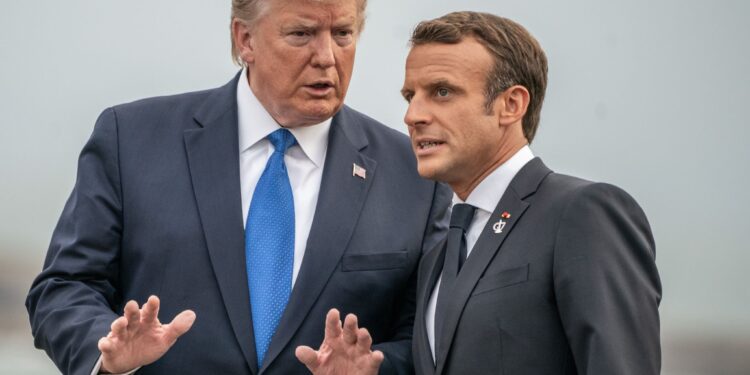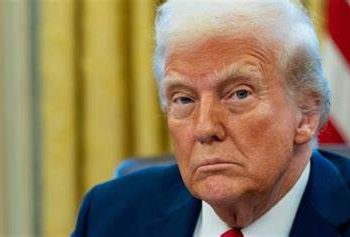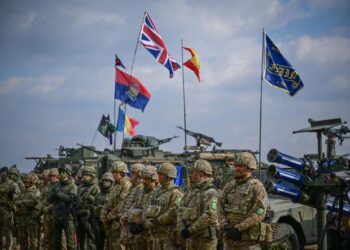U.S. President Donald Trump has sharply contradicted French President Emmanuel Macron’s explanation for his early departure from the G7 summit in Canada, dismissing claims that he left to negotiate a ceasefire between Israel and Iran as completely false.
In a strongly-worded post on his Truth Social platform Monday, Trump accused the French leader of making publicity-seeking statements without knowing the real reasons behind his decision to cut short his participation in the Kananaskis summit.
“Publicity-seeking President Emmanuel Macron, of France, mistakenly said that I left the G7 Summit, in Canada, to go back to DC to work on a ‘ceasefire’ between Israel and Iran. Wrong! He has no idea why I am now on my way to Washington, but it certainly has nothing to do with a Cease Fire. Much bigger than that. Whether purposely or not, Emmanuel always gets it wrong. Stay tuned!” Trump wrote.
The public rebuke came after Macron addressed reporters at the summit, suggesting that Trump was leading diplomatic efforts to broker peace between the two Middle Eastern rivals currently engaged in escalating military exchanges.
“There is an offer that has been made, especially to have a ceasefire and to initiate broader discussions,” Macron had told the press. “If the United States of America can achieve a ceasefire, it is a very good thing and France will support it and we wish for it.”
Trump’s categorical denial of any connection between his departure and Israel-Iran mediation efforts has sparked intense speculation about what he described as a “much bigger” situation requiring his immediate return to Washington. The president provided no additional details about the nature of his urgent mission, leaving both allies and observers guessing about the development that prompted his early exit.
The American president departed the Canadian Rockies summit a full day ahead of schedule, as Israel and Iran entered their fifth consecutive day of missile exchanges that have raised international fears of a broader regional conflict. Before leaving Canada, Trump issued a stark warning urging Tehran residents to evacuate, signaling the gravity of the escalating situation and America’s deepening involvement in the crisis.
The public disagreement between Trump and Macron underscores the ongoing tensions in their relationship, which has been marked by disputes over NATO funding, climate policy, and various diplomatic approaches to global challenges. Their latest clash comes at a particularly sensitive moment as world leaders struggle to address the deteriorating security situation in the Middle East.
The French president’s comments suggesting American leadership in ceasefire negotiations appeared to catch the Trump administration off guard, prompting the unusually direct public correction from the U.S. president. The exchange highlights the challenges facing international coordination efforts as the Israel-Iran conflict continues to escalate.
As speculation mounts about Trump’s cryptic reference to something “much bigger” than Middle East diplomacy, the White House has yet to provide any clarification about the president’s urgent return to Washington or the nature of the situation demanding his immediate attention.
The incident adds another layer of complexity to already strained G7 discussions, as member nations grapple with multiple global challenges while navigating the diplomatic fallout from the Trump-Macron public dispute.


















